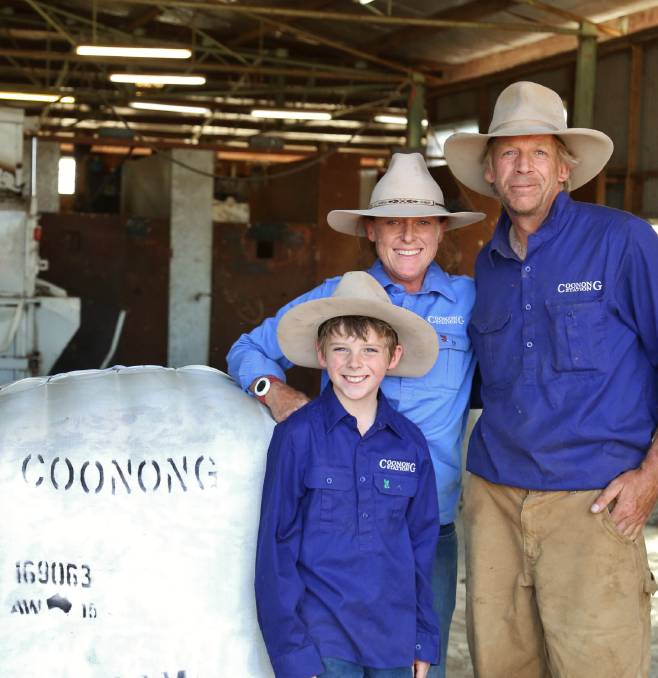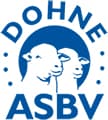Dohne proves a profitable fit
Niche markets for non-mulesed and ethically produced wool have been achieved by a Riverina family after a switch to the Dohne breed.
Tom and Sophie Holt run a sheep, cattle and irrigated cropping enterprise at Urana and Jerilderie and have ticked the boxes with knitwear manufacturers with their Dohne wool.
Their high volume clip, from a flock of 32,000 sheep, has been snapped up by Australian and New Zealand companies producing pure wool travel and leisure garments.
Woollen apparel made from Dohne fleece has been supplied to the Australian and New Zealand Defence Forces and the Victorian Police. Wool from the Holt family’s Coonong Station clip has also been used by Qantas for company uniforms.
Mr Holt said demand for ethically produced wool was strong from Japan, New Zealand and China.
He said manufacturer feedback had indicated Dohne wool spun well due to a high comfort factor.
Garments made from Coonong wool will be on display at the Station during a stop over on the 2016 Dohne Global Conference tour on Tuesday, July 19.
Visitors will be able to inspect 4500 unclassed maiden ewes and Dohne sires and enjoy an Argentinian style lunch.
Tom and Sophie run 32,000 Dohne and Dohne cross sheep, including 13,000 breeding ewes averaging 19.9 micron and cutting an average of 4.5kg.
Set in a 424mm rainfall zone, the 26,720 ha aggregation consists of Coonong, at Urana and Coolbaroo at Jerilderie.
The sheep graze natural pastures of curly windmill grass, hairy panic, wallaby grass, winter ryegrass and wild oats.
The move to Dohnes has been a commercial and financial success, with a lift in fertility and carcass weight and a reduced fibre diameter on bright, white wool.
A long-standing Merino breeder, Mr Holt first ventured into Dohne seedstock genetics in 2001 and by 2003 had realized the commercial attributes of the breed outweighed his Merino flock.
The family invested in 100 Dohne rams from Western Australia in 2003 with an 18-year strategy of changing the entire flock to purebred Dohne.
They started with a base Merino ewe flock of 21 micron cutting 6kg and with a lambing percentage of 94-96.
Sophie and Tom Holt, with son Thomas, on Coonong Station, Urana, NSW.












 Facebook
Facebook YouTube
YouTube Instagram
Instagram